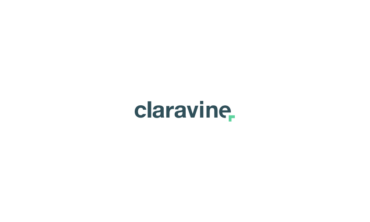Why I love Data
 Anyone who knows me knows that I work in data analytics because I enjoy it. For people whose brains work differently, this can be hard to understand. Occasionally someone will ask me, “What intrigues you so much about this field?” I look at it like a game of chess. There are problems to be solved, and questions to be answered. The analyst’s challenge begins as a blank slate, with every conceivable route to data reporting available. Then, specific metrics we want to derive act as constraints that pare down the possibilities to just a handful. Once we know what data picture we want, there are still multiple ways to get there: the challenge and the fun of analytics work is creating an efficient path that doesn’t break and that creates trusted data.
Anyone who knows me knows that I work in data analytics because I enjoy it. For people whose brains work differently, this can be hard to understand. Occasionally someone will ask me, “What intrigues you so much about this field?” I look at it like a game of chess. There are problems to be solved, and questions to be answered. The analyst’s challenge begins as a blank slate, with every conceivable route to data reporting available. Then, specific metrics we want to derive act as constraints that pare down the possibilities to just a handful. Once we know what data picture we want, there are still multiple ways to get there: the challenge and the fun of analytics work is creating an efficient path that doesn’t break and that creates trusted data.
Then it’s about bending the technology to serve us (instead of us serving the technology), and it’s about getting the people who work with you to ask the right questions, and do the right analyses to answer those questions.
There are lots of companies that complain. They’re spending all this money on premium data capture, and they say, “we’re not really getting much out of it.” I love going in and saying, “I’ll sit with you, and I don’t care how long it takes, we’re going to peel away until we get at what you want to know, and how we can answer those questions.” There’s a big gap between the expectations people have of campaign tracking and their patience with the process. At the first hint of trouble, many stakeholders throw up their hands. They think, “Here’s what our website should be doing, and here’s our revenue; there’s a big abyss between the two. Any correlation seems to be dumb luck.”
Part of the problem is that a lot of people don’t know what they want to know. Companies say, “hey, we can measure all this site traffic!” So they buy a tool. But they may not know why they have a website in the first place. Who/what is their website for? Suddenly, as an analyst you’re in a world of politics, wondering what you can do to help your company answer the question: what do we want our website to be?
When I worked at Omniture, salesforce.com was one of the accounts I worked on, and they were not happy customers. They were thinking of getting rid of Omniture, because it “wasn’t working, throwing good money after bad.” I advocated going back to the drawing board. I wanted to know what they thought they were getting. I started by asking what the execs thought they were supposed to get, and what they were getting. It turns out they thought web analytics was an operational system that was supposed to tell them the exact answers to everything, like an Oracle database. The first thing I did was re-establish that it is more about directional guidance, so we could get more leads, etc. The second thing we did was review all the things they were collecting, and we mapped it to the latest tools and industry standards.
After 15 years of doing analytics work, here’s what I think is the secret sauce: most companies spend 70% of their time on implementation, and 10-20 on developing data requirements. They really should spend 70% on establishing requirements. Once you’re really clear on what you wish to measure, you’ll know how to use the tools.



